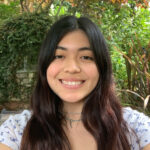
by Sofia Hernandez ’24
During the beginning of the ULF program, all the way back in the beginning of the Fall semester, us fellows were asked to identify and reflect on a gift we believed we possessed and whether we thought we were living a life that honored said gift. Towards the end of my written reflection, I wrote:
“Being at Berkeley has been a difficult adjustment but has [also] proven that I can be resilient in the face of the unknown.”
Throughout my experience within the fellowship program and my overall undergraduate journey so far, resiliency has been a term that I’ve come to closely associate with myself. As a first generation Chicanx student, I’ve experienced first-hand how intimidating and unapproachable the world of academia can be. The obstacles brought forth by the pandemic–remote instruction and the uncertainty towards the future, for example–only further proved that entry points and accessibility are necessary for the success of undergrad students, especially those who have historically been excluded from access to the resources. Within the Research fellowship cohort, we identified this issue and dedicated our project towards serving the undergrad community in finding an entry point to library services through research support.
Our group’s process in workshopping our service project proved to be a test of resiliency. As part of an initial landscape review of the existing research related services at Cal, I participated in a Research 101 workshop to get an overview of what students were learning about research. At this moment in time, our cohort had settled on the idea of creating an in-person peer-to-peer research event where us Research fellows would take alternating shifts throughout the day and provide support for students who were inquiring about research. After the Research 101 workshop, I stuck around to debrief with the mentors and was able to think about the big picture. Our initial idea was admittedly too ambitious considering our one-month time frame, and we hadn’t factored in the amount of preparation needed for the event beforehand which would have included intensive research-related training for the Research cohort to be prepared to answer any and all student questions. In sum, we had aimed for a goal beyond our possibilities unfortunately.
Through talking with the mentors, I was able to take a step back and reengage with our service project. Reimagining our proposed service project instead as a point of reference, I was able to better visualize and identify the steps necessary towards getting there. Being open to change and feedback helped our group’s deliverable in the long run. Instead of having the in-person service event running for this semester, we reasoned that we had a unique opportunity to begin planting the seeds for the future by identifying and capturing what sorts of questions students had regarding research through speaking to student library employees, who have direct contact and interactions with undergrad students on the daily. By figuring out what current library workers were and are experiencing, the Research team would be able to provide the initial research scope that could assist future fellows and even librarians in adjusting their services to better meet the needs of students and provide that entry point.
Resiliency in my undergrad and fellowship experience has allowed for flexibility in the face of unexpected curveballs, from pandemics to prototyping!